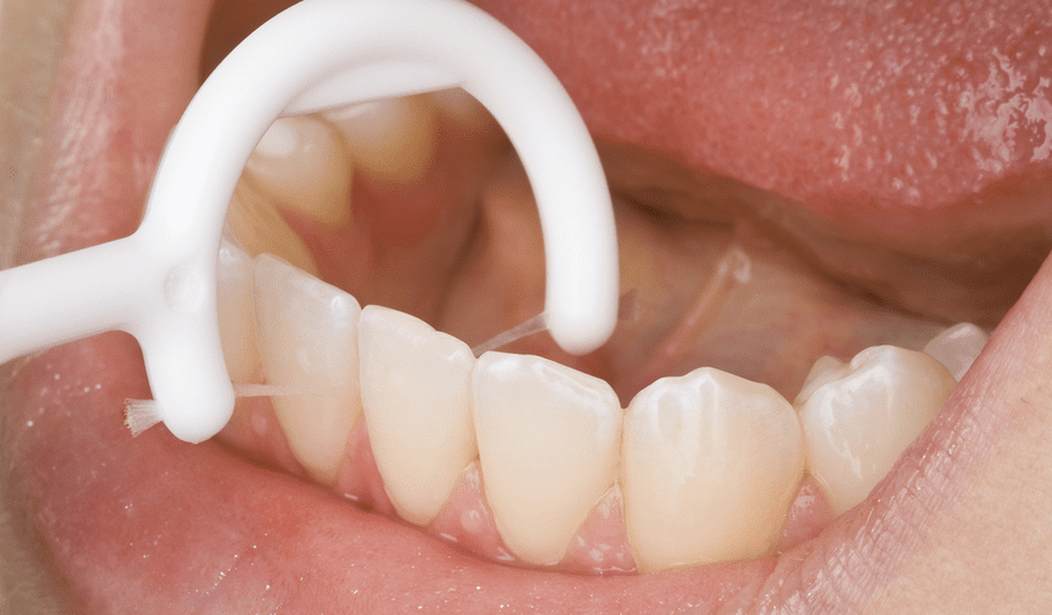Most of us grew up being told to not only brush after every meal, but also to floss. We were told how vital it was to take a tiny piece of wax-covered string and to run it between your teeth. School health classes ran movies showing that piece of string pulling out chunks of food that brushing missed. Flossing was vital for your health.
It was total bull. There was almost no science that backed up the assertions regarding flossing:
This stain on the dental profession was cracked wide open last year when the Associated Press asked federal agencies for the data behind its recommendation that Americans floss. After the AP filed Freedom of Information Act requests, the government admitted that it didn’t have adequate data to back the recommendation — something it is required to have by law.
The U.S. Agriculture and Health and Human Services departments quietly removed the flossing recommendation from the latest version of dietary guidelines.
Since doctors began saying that a string-based tooth scraping was good for oral health, a handful of studies have been conducted. However, they all fall far short of what’s needed to make a convincing argument. A 2011 review of a dozen randomized controlled studies concluded that, “Overall there is weak, very unreliable evidence which suggests that flossing plus toothbrushing may be associated with a small reduction in plaque at 1 or 3 months.”
Of course, this isn’t the only time the government has botched it when it comes to your health.
For example, many of us were raised hearing about how horrible fat is for humans. Fat, it was said, made you fat, and also contributed to heart disease. Cholesterol was going to kill us all.
Once again, it’s now shaping up to be total bunk. Even saturated fat, which many Americans still think of as dangerous, isn’t the boogeyman it was painted as for decades. Not only that, but those recommendations to replace fats with carbohydrates — grains being the government-approved choice for a replacement — may be killing us. The low-fat craze began just a short time before the obesity rates in the United States began to skyrocket. While correlation doesn’t equal causation, it’s a fascinating bit of data.
Science is never settled.
It’s always changing. In nutritional science, this is especially true. Ethics rules necessarily prevent some experiments having human participants, which means it’s difficult to determine just what the problems are. However, people look at government recommendations as a stamp of approval.
Frankly, the government seems to encourage this, rather than encourage people to take responsibility and to make up their own minds.
Of course, if people did that, they may realize they don’t need bureaucrats to tell them what’s safe to eat and what isn’t, or to tell them what’s smart to do and what’s foolish.
They might realize they hardly need government … at all. Just the limited powers granted it in the Constitution. Imagine that!









Join the conversation as a VIP Member